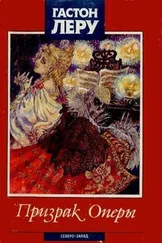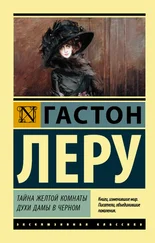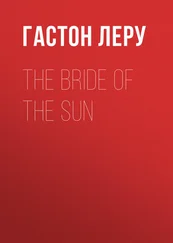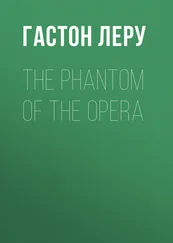Гастон Леру - The Double Life
Здесь есть возможность читать онлайн «Гастон Леру - The Double Life» — ознакомительный отрывок электронной книги совершенно бесплатно, а после прочтения отрывка купить полную версию. В некоторых случаях можно слушать аудио, скачать через торрент в формате fb2 и присутствует краткое содержание. Жанр: literature_20, Классический детектив, foreign_detective, на английском языке. Описание произведения, (предисловие) а так же отзывы посетителей доступны на портале библиотеки ЛибКат.
- Название:The Double Life
- Автор:
- Жанр:
- Год:неизвестен
- ISBN:нет данных
- Рейтинг книги:4 / 5. Голосов: 1
-
Избранное:Добавить в избранное
- Отзывы:
-
Ваша оценка:
- 80
- 1
- 2
- 3
- 4
- 5
The Double Life: краткое содержание, описание и аннотация
Предлагаем к чтению аннотацию, описание, краткое содержание или предисловие (зависит от того, что написал сам автор книги «The Double Life»). Если вы не нашли необходимую информацию о книге — напишите в комментариях, мы постараемся отыскать её.
The Double Life — читать онлайн ознакомительный отрывок
Ниже представлен текст книги, разбитый по страницам. Система сохранения места последней прочитанной страницы, позволяет с удобством читать онлайн бесплатно книгу «The Double Life», без необходимости каждый раз заново искать на чём Вы остановились. Поставьте закладку, и сможете в любой момент перейти на страницу, на которой закончили чтение.
Интервал:
Закладка:
Without hesitating I groped around, feeling the stones in the dark, and my feet trod a soil which seemed familiar but which had not been trodden for centuries. I seemed to know these very stones, forgotten in the darkness of those cellars. I slid the length of the damp flagstones as if I had been accustomed to the way. My finger-nails came in contact with sharp stones in the wall and I counted the seams as I passed. I knew that if I turned round I would see a certain square light in the distant gallery, a single ray in all this place where the sun had forgotten to shine since France’s history had begun. I turned and saw it, and I felt my heart beat violently.
Here there was a momentary interruption in the writings. M. Longuet, having explained what had happened to him in that strange hour in the Conciergerie, was greatly agitated. It was with difficulty he remained master of his thoughts. It was difficult to follow them; they seemed to come and go, just leaving faint traces on the paper of the record.
He resumed the pen with feverish hand. Continuing to busy himself with the subterranean passages, he writes:
It is necessary to pause here as one pauses at the edge of a precipice. My very thoughts make me shiver!…
And the Bavarde, there it stands. There are the walls which have helped to make history. It is not on high in the glorious sunlight that the Bavarde tells its history. It is here in the blackness of the earth. There are some large iron staples in the wall here. The very chains of Ravaillac! I recall no more; but towards that ray, the sole ray of light, as eternal and immovable as the very walls- towards that small square beam, which since the beginning of things has taken and kept the shape of a sentinel, I advanced. There was some impelling force which urged me on. I rushed ahead while the fever was in me and seemed to intoxicate me. Suddenly I paused, my feet seemed held to the ground and my fingers ran sliding and pressing the length of the wall. What it was that impelled my finger, what was the thought, I cannot tell. All at once I let my umbrella fall, and drawing my pen-knife, began to scrape steadily between two stones. The dust and cement powdered away easily, and soon my knife struck something between the stones, and I pulled the thing out.
This is why I am sure I was not mad. This thing has been before my eyes. In my most peaceful hours I, Théophraste Longuet, see it in my writing-desk. It is not I who am mad, but this thing itself! It is a piece of torn paper, stained. . . a document of which it is easy to tell the age and calculated to plunge any man into the deepest consternation.
The paper is, as you must know, terribly decayed. The dampness has eaten into half the words, which seem, on account of their reddish tint, to have been written with blood.
I took the document to the small ray of light, and on looking it over my hair seemed to stand on end with horror. There I could recognize my own handwriting , and I give you this precious and mysterious document clearly translated:
“Dead and buried all his treasures after the Treachery of April 1st. Go, take a look in the barroom! Look at the furnace! Look at the weathercock! Dig a while and you shall be rich!”
CHAPTER III
A Search and a Discovery
M. ADOLPHE LECAMUS and Marceline thought M. Théophraste’s actions strange, but they were too much occupied with an affair of their own to attach very great importance to them. However, M. Théophraste concealed his anxiety and pretended that the visit to the Conciergerie was quite a natural occurrence. He had gone down in the cellars just to satisfy a natural curiosity, not being one of those who make a superficial inspection of things of interest.
The following day, M. Théophraste, under the pretext of putting his affairs in order, shut himself up in his office and gave instructions for nobody to disturb him. Leaning over the balcony he looked out upon the little square of Anvers and reflected over the happenings of yesterday. There was nothing in the view to distract him. He was accustomed to the scene below: nurses pushing perambulators gossiping over the latest news, and a few professors walking towards the Rollie College. The Avenue Touraine rang with the shouts of college students who had come before the lecture hour.
Nothing had changed; the world was just the same. To-day, like yesterday, or like the day before yesterday. The people were going to their business just the same. Even Nidine Petito, the wife of the Italian professor, who lived in the apartment below, was the same. She began to play the “Carnival of Venice” on the piano just as she did every day.
Nothing had changed; thus he reflected. On turning round he could see amongst his papers on the desk, the document. Did it really exist? He had passed a restless night and was now attributing his strange adventure to a bad dream-but no, it could not be that, for there was the paper on his desk, in his own handwriting, and written in blood. Good God! perhaps it was his own blood. What thoughts, what thoughts!
Théophraste passed his hand over his forehead. He was perspiring and restless. Suddenly breathing a sigh and slapping his thigh with his hand, he appeared to have come to a definite resolution, and put the paper carefully away in his portfolio.
He remembered that Signor Petito, the Italian professor, was an expert in handwriting and that he had had experience in engraving. He would take the document to him and ask his opinion. His friend Adolphe was also interested in graphology, but only in a spiritual way, and so he would not confide in him. There was already too much mystery in the affair without mixing it up with spiritualism and mediums.
He had only known the professor to bow to on the stairs, and so in presenting himself he was introduced. The professor greeted him cordially, and after the usual formalities, Théophraste broached the subject of his visit. He produced the paper, and a letter which he had written some time previously. “Signor Petito,” he commenced, “having heard of your renown as an expert in handwriting, I would be grateful to you if you would examine this letter, and this document, and give me the result of your observations. I may say that there is no connection between the two papers.”
Théophraste was not in the habit of lying, and blushed redder than a peony. But Signor Petito was already deeply engrossed in the examining of the two papers. His scholarly eye looked over one, then the other. He placed them together, held them up to the light, passed his hand over the writing, and measured them. Then he laughed, showing his white teeth.
“Monsieur Longuet,” said he, “it is not necessary for me to keep you waiting long for a reply. This document is in a very bad condition, but the specimen of handwriting can still be read. They are in every way similar to the letter, and I would swear before any tribunal that those two handwritings have been traced by the same hand.”
Then he entered into details. “A child,” he said, “could not be mistaken about it.” He pointed out how this duplicate writing was identically angular. “We call a handwriting angular, Monsieur, when the hair-strokes which join the bottom of the letters and the separate letters are at an acute angle to the down-strokes of the letters. Do you understand? Compare this hook and that one, those hair-strokes with these others, and all those letters getting larger, larger in both writing and in equal measure. But what a clear writing, Monsieur; I have never seen such clear writing before. As clear as if cut with a knife.”
By this time Théophraste had become white with nervousness. Signor Petito thought that he was going to faint. However, he arose, picked up the document and the letter, and having thanked Signor Petito, he went out.
Читать дальшеИнтервал:
Закладка:
Похожие книги на «The Double Life»
Представляем Вашему вниманию похожие книги на «The Double Life» списком для выбора. Мы отобрали схожую по названию и смыслу литературу в надежде предоставить читателям больше вариантов отыскать новые, интересные, ещё непрочитанные произведения.
Обсуждение, отзывы о книге «The Double Life» и просто собственные мнения читателей. Оставьте ваши комментарии, напишите, что Вы думаете о произведении, его смысле или главных героях. Укажите что конкретно понравилось, а что нет, и почему Вы так считаете.
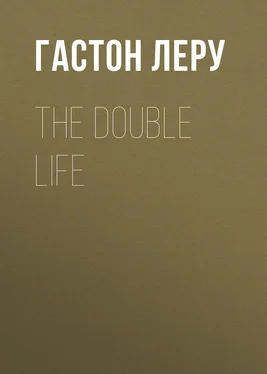
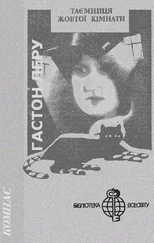


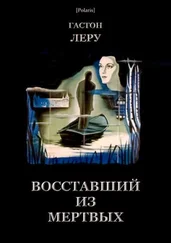
![Гастон Леру - Невеста Солнца [Роман]](/books/415626/gaston-leru-nevesta-solnca-roman-thumb.webp)
